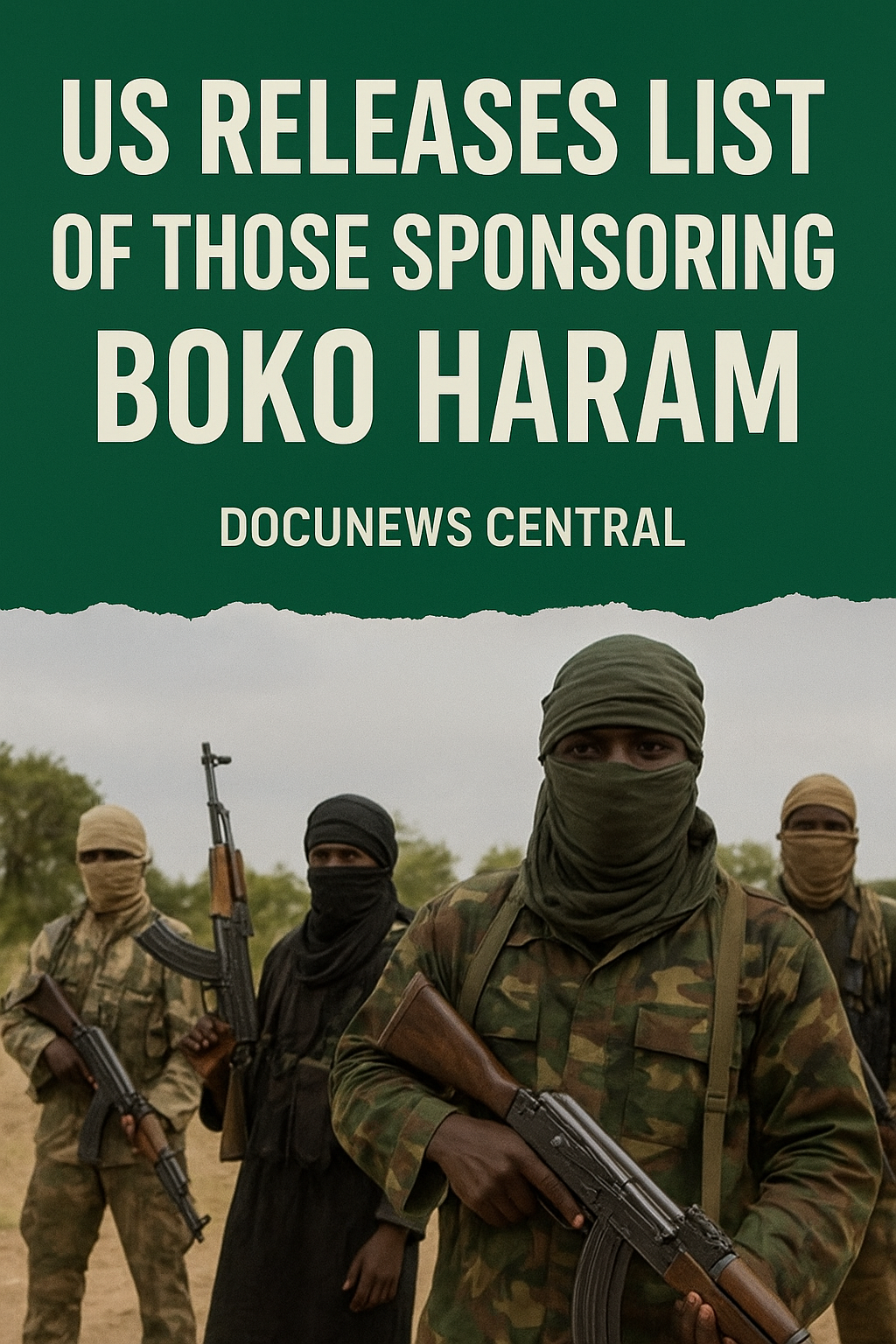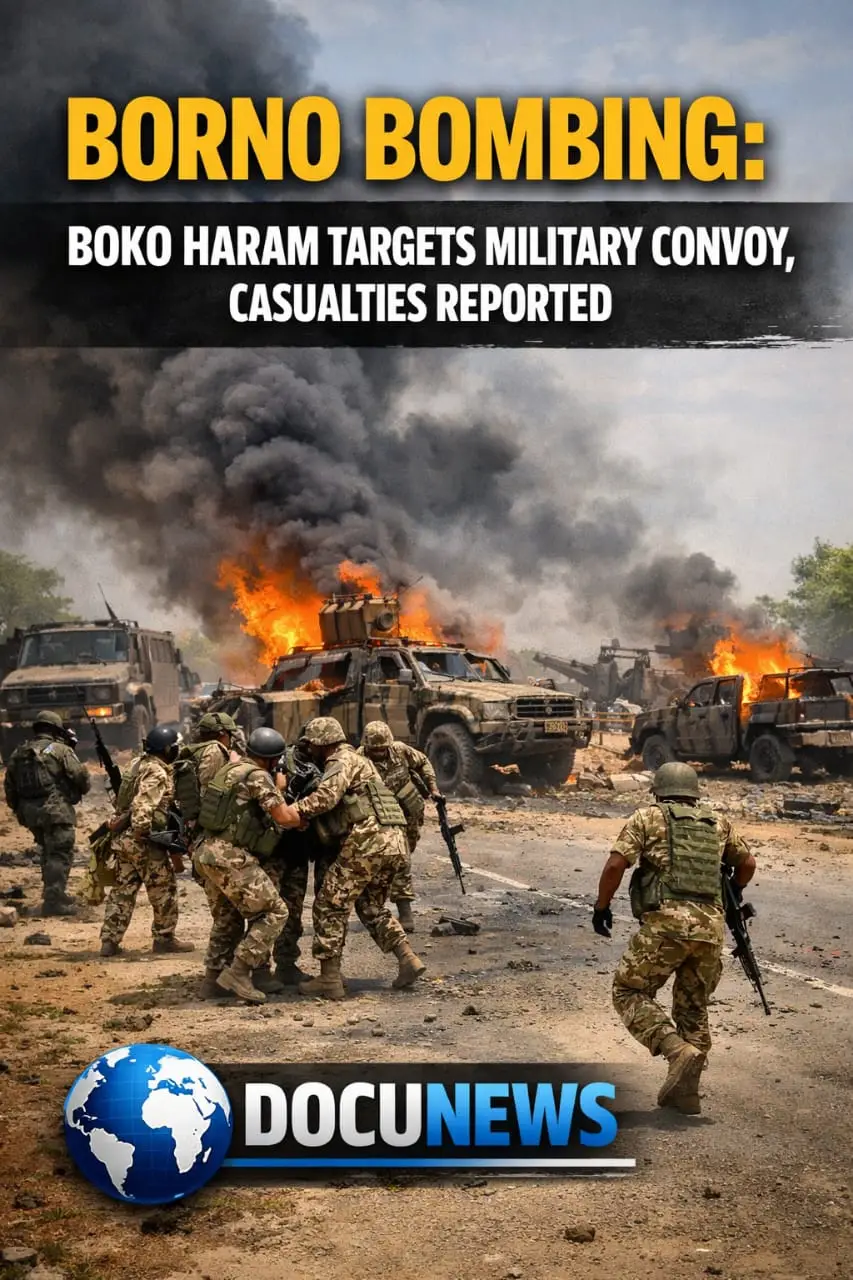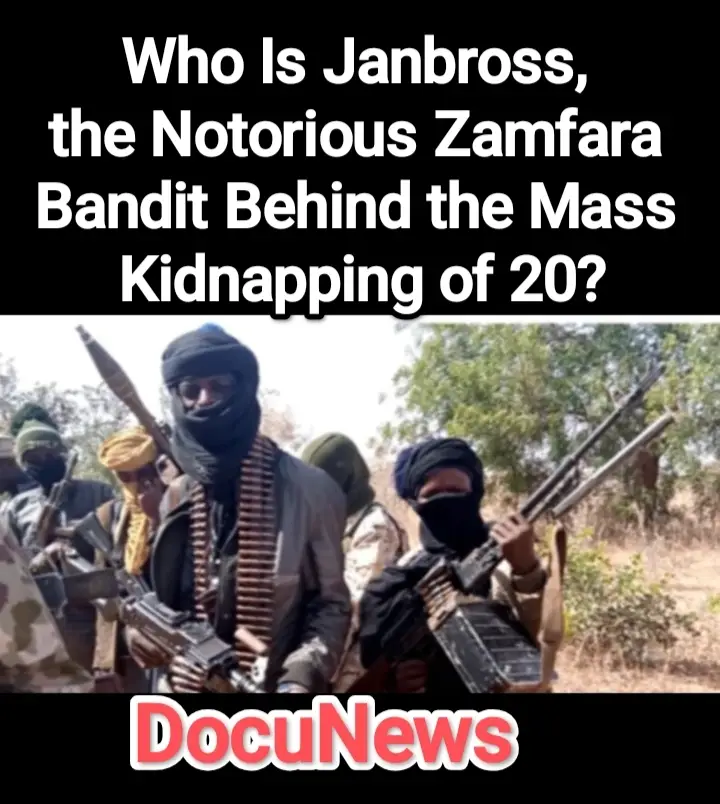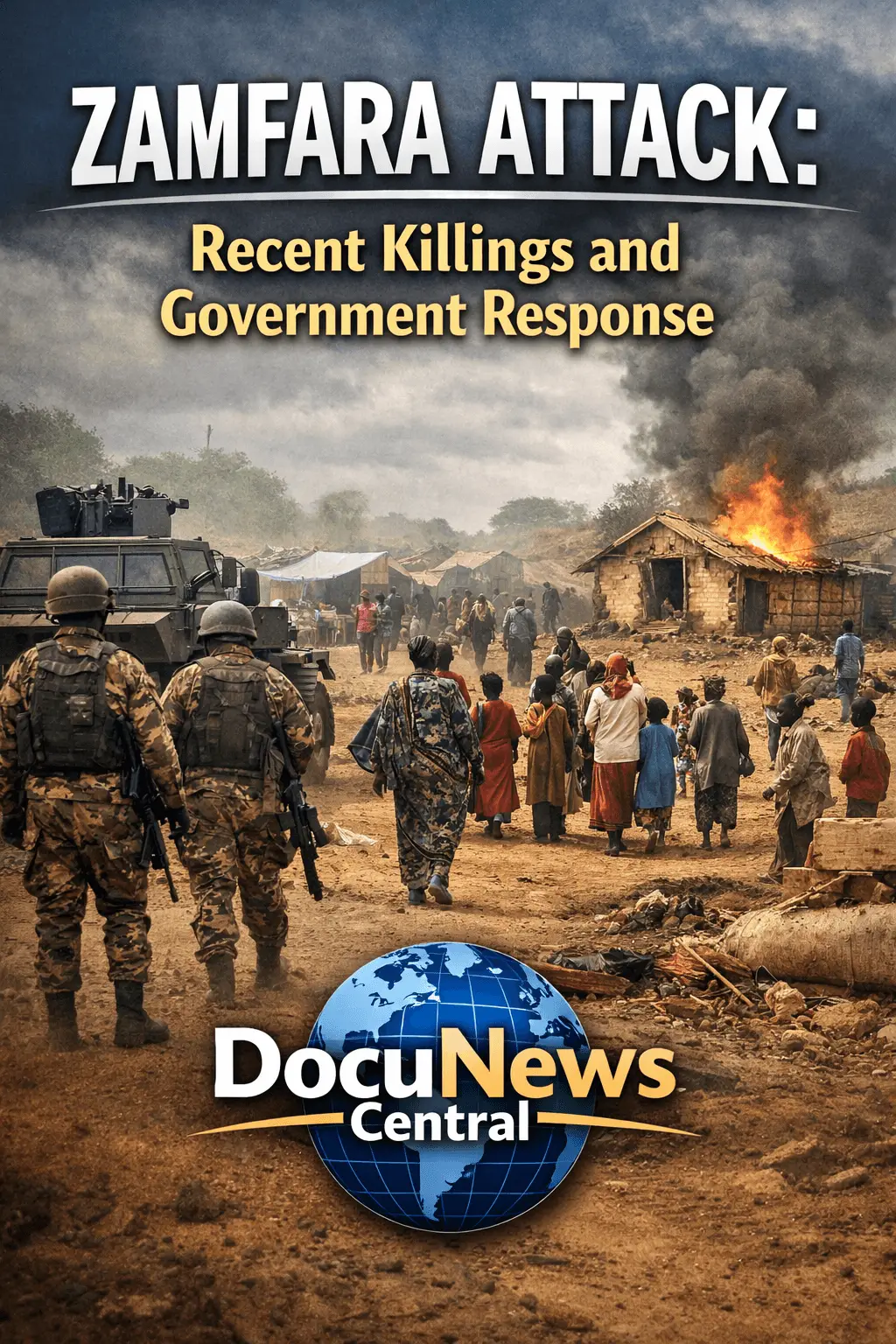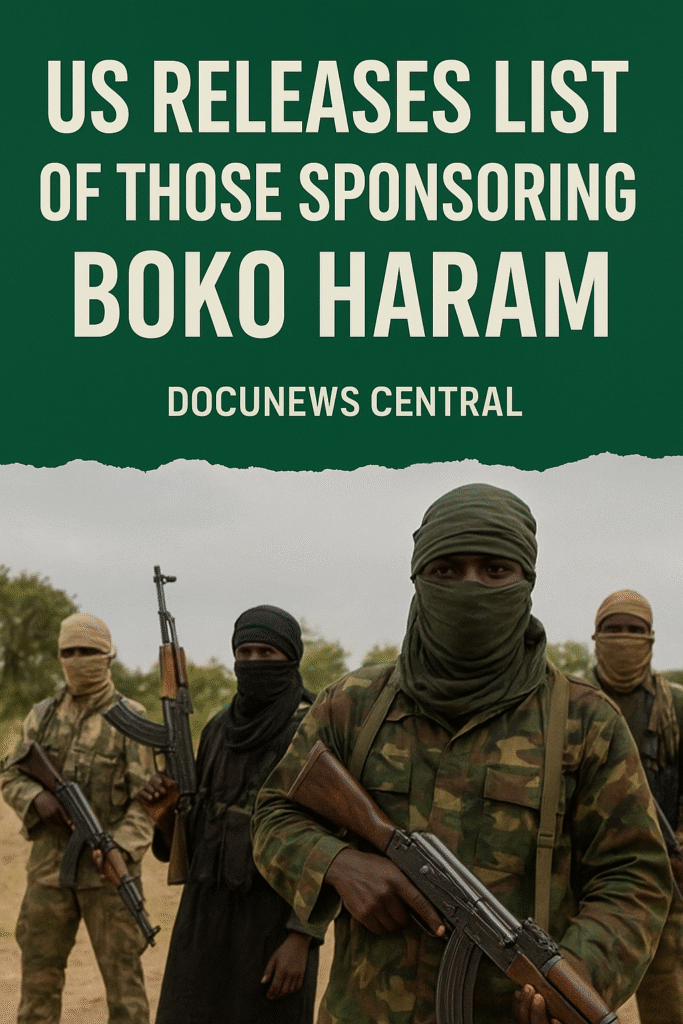
By DocuNews Central — The United States government has named and sanctioned six Nigerians for funding the terrorist group Boko Haram. The move comes as part of Washington’s ongoing global effort to cut off financial support for terrorism. The decision was made through the U.S. Department of the Treasury’s Office of Foreign Assets Control (OFAC) under Executive Order 13224.
US Action Against Terrorism Sponsors
The Treasury Department announced that these individuals were part of a financial network operating from the United Arab Emirates. According to OFAC, they helped channel funds from overseas back to Boko Haram cells operating in Nigeria. This action demonstrates the United States’ determination to combat terrorism not only through military means but also by tracking and blocking financial flows that empower violent groups.
Speaking on the sanction, a U.S. official noted that “the designation of these individuals is part of our effort to isolate terrorist organizations from their global financial supporters.” The announcement has since drawn significant attention from both Nigerian and international observers.
Full List of Nigerians Sanctioned
Below is the list of Nigerians sanctioned by the U.S. for sponsoring Boko Haram:
- Abdurrahman Ado Musa
- Salihu Yusuf Adamu
- Bashir Ali Yusuf
- Muhammed Ibrahim Isa
- Ibrahim Ali Alhassan
- Surajo Abubakar Muhammad
All six men were found to have supported the terrorist group financially. Their bank accounts and assets under U.S. jurisdiction have been frozen, and Americans are now prohibited from doing business with them.
Why the US Took Action
According to U.S. intelligence reports, these individuals helped establish a funding chain for Boko Haram through foreign donations and business networks. The funds were allegedly used to purchase weapons, vehicles, and logistics materials used in terrorist operations across northern Nigeria and the Lake Chad region.
By disrupting this financial chain, the U.S. aims to weaken Boko Haram’s operational capability and reduce the group’s access to international funding. This step aligns with broader global efforts to combat terrorism in Africa, especially in areas affected by violent extremism.
Reaction from Nigeria
Following the release of the list, several Nigerian security agencies expressed readiness to cooperate with the U.S. in investigating other possible sponsors. The Nigerian Financial Intelligence Unit (NFIU) and the Economic and Financial Crimes Commission (EFCC) pledged to review the cases and strengthen local monitoring systems to detect suspicious transactions.
Meanwhile, the Nigerian government also published a domestic list of individuals and companies suspected of funding terrorism. That action shows a shared commitment between Nigeria and the United States in addressing this serious security challenge.
Impact on the Fight Against Boko Haram
Experts believe that cutting off the group’s financial lifelines could slow its operations. Since money is essential for recruitment and logistics, blocking terrorist funding weakens their ability to attack civilians and security forces. This U.S. action sends a clear message that terrorism financing will no longer go unpunished.
Security analysts also encouraged more transparency and collaboration between international partners. The more nations share intelligence and trace suspicious accounts, the harder it becomes for extremist groups to survive financially.
Conclusion
The release of the U.S. list of Boko Haram sponsors marks another strong step in the global war against terrorism. It reinforces the importance of international cooperation, intelligence sharing, and financial monitoring in dismantling terror networks. As both the U.S. and Nigeria strengthen their partnership, there is renewed hope that the fight against terrorism in Nigeria will continue to gain ground.
Stay with DocuNews Central for verified updates on Nigeria’s security and international relations.







